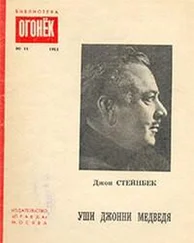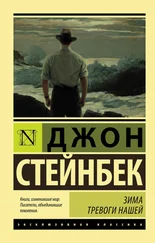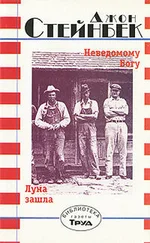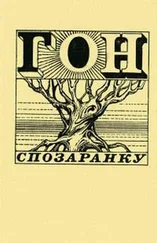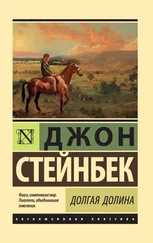Джон Стейнбек - Cup of Gold [Золотая чаша]
Здесь есть возможность читать онлайн «Джон Стейнбек - Cup of Gold [Золотая чаша]» — ознакомительный отрывок электронной книги совершенно бесплатно, а после прочтения отрывка купить полную версию. В некоторых случаях можно слушать аудио, скачать через торрент в формате fb2 и присутствует краткое содержание. Год выпуска: 1929, Жанр: Прочие приключения, на английском языке. Описание произведения, (предисловие) а так же отзывы посетителей доступны на портале библиотеки ЛибКат.
- Название:Cup of Gold [Золотая чаша]
- Автор:
- Жанр:
- Год:1929
- ISBN:нет данных
- Рейтинг книги:5 / 5. Голосов: 1
-
Избранное:Добавить в избранное
- Отзывы:
-
Ваша оценка:
- 100
- 1
- 2
- 3
- 4
- 5
Cup of Gold [Золотая чаша]: краткое содержание, описание и аннотация
Предлагаем к чтению аннотацию, описание, краткое содержание или предисловие (зависит от того, что написал сам автор книги «Cup of Gold [Золотая чаша]»). Если вы не нашли необходимую информацию о книге — напишите в комментариях, мы постараемся отыскать её.
Cup of Gold [Золотая чаша] — читать онлайн ознакомительный отрывок
Ниже представлен текст книги, разбитый по страницам. Система сохранения места последней прочитанной страницы, позволяет с удобством читать онлайн бесплатно книгу «Cup of Gold [Золотая чаша]», без необходимости каждый раз заново искать на чём Вы остановились. Поставьте закладку, и сможете в любой момент перейти на страницу, на которой закончили чтение.
Интервал:
Закладка:
She did not weep nor move nor even seem to breathe. "Oh, my wife-Elizabeth-say that you will believe in his coming, very soon-soon-before you have missed him," he cried wildly. "Do not lie there silently and lost. He will be here when the Spring comes in. You must believe it, dear-my dear." Very softly he stroked the still cheek beside him with his great tender fingers.
VII
He had crept from the house in the false dawn, and started briskly walking on the road to Cardiff. There was a frozen, frightened thing in his heart, and a wondering whether he wanted to go at all. To his mind the fear had argued that if he waited to say good-by he would not be able to leave the stone house, not even for the Indies.
The sky was graying as he went by pastures where he had tossed and played, and by the quarry where was the cave in which he and his friends acted the delightful game of "Robbers," with Henry always the Wild Wag, Twym Shone Catti, by acclamation.
The mountains stood sharply before him, like cardboard things and along their rims a silver fringe. A little wind of dawn blew down the slopes, fresh and sweet smelling, bearing the rich odor of moistened earth and leaves. Horses whinnied shrilly at him as he passed, then came close and gently touched him with their soft noses; and coveys of birds, feeding on belated night crawlers in the half dark, flew up at his approach with startled protests.
By sun-up there were new miles behind him. As the yellow ball slid from behind the peaks, coloring all the tattered clouds of the mountains, Henry drew a thick curtain down against the past. The pain and loneliness that had walked with him in the dark were pushed back and left behind him. Cardiff was ahead.
He was coming to new country which he had never seen before, and below the morning horizon, faint and glorious, seemed to glow the green crown of the Indies.
He passed through villages whose names were unknown to him; friendly little clusters of rude huts, and the people staring at him as at a stranger. It was a joyous thing to young Henry. Always he had stared at others who were strangers, dreaming their destinations and the delicious mystery that sent them forth. The name of Stranger made them grand beings with mighty purposes. And now he was a stranger to be thought about and stared at with a certain reverence. He wanted to shout, "I'm on my way to the Indies," to widen their dull eyes for them and raise their respect. Silly, spineless creatures, he thought them, with no dream and no will to leave their sodden, dumpy huts.
The land changed. He was coming out of the mountains to a broad, unbounded country of little rolls and flat lands. He saw large burrows like the holes of tremendous gophers, and dirty black men coming out of them with sacks of coals on their backs. The miners emptied their sacks in a pile on the ground and then walked back into the burrows. He noticed that they stooped when they walked as though the heavy bags were still bearing them down.
Middaycame, and a long, clear afternoon, and still he trudged on. There was a new odor in the air, the sweet, compelling breath of the sea. He wanted to break into a run toward it like a thirsty horse. In the late afternoon an army of black clouds drew over the sky. A wind rushed out with snow in its breath, and the grasses bowed before it.
Still he went on into the gathering storm until it was armed with sleet which pricked his face viciously, and until the cold went piercing through his jacket. There were occasional houses to either side of the road, but Henry would seek shelter and food at none of them. He did not know the customs of this place, nor the prices of things, and his five pounds must be intact when he came at last to Cardiff.
At length, when his hands were blue and his face raw with the wild sleet, he crawled into a lonely, stone barn filled with the summer's hay. It was warm, there, and quiet after the screaming of the wind in his ears. The hay was sweet with the honey dried in its stems. Henry burrowed into the soft bed and slept.
It was dark night when he awakened. Half-dreaming, he remembered where he was, and at once the thoughts which he had shut from him the day before thronged back with clamoring strident voices.
"You are a fool," said one. "Remember the big room and the pikes and the bright fire! Where are they now? Oh, you will not see them any more. They are gone out like things of dreams, and you do not even know where dreams go. You are a fool!"
"No, no; listen to me! Think of me! Why did you not wait for Elizabeth? Were you afraid? Yes, you were afraid. This boy is a coward, brothers. He is afraid of a small girl with yellow hair-a tenant's daughter."
A sad, slow voice broke in. "Think of your mother, Henry. She was sitting straight and still when you last saw her. And you did not go to her. You only looked from the doorway as you went. Perhaps she has died in her chair, with the look of hurt in her eyes. How can you tell? And Robert, your own father-Will you think of him, now-lonely, and sad, and lost. It's your doing, Henry because you wanted to go to the Indies you did not think of any one else."
"And what do you know of the future?" asked a tiny, fearful voice. "It will be cold, and perhaps you will freeze. Or some stranger may kill you for your money, little as it is. Such things have happened. Always there has been some one to look after you and to see that you were comfortable. Oh, you will starve! you will freeze! you will die! I am sure of it!"
Then the noises of the barn edged in among his tormentors.
The storm was past, but a breeze sighed around corners with infinite, ghostly sadness. Now and again it voiced a little wail of sorrow. There was a creaking in the hay as though every straw squirmed and tried to move stealthily. Bats flitted about in the dark gnashing their tiny teeth, and the mice were screaming horribly. Bats and mice seemed to be glaring at him from obscurity with small, mean eyes.
He had been alone before, but never so thoroughly alone, among new things, in a place he did not know.
The terror was growing and swelling in his breast. Time had become an idling worm which crawled ahead the merest trifle, stopped and waggled its blind head, and crawled again. It seemed that hours passed over him like slow, sailing clouds while he lay shivering with fright. At last an owl flew in and circled above him, screeching maniacally.
The boy's overstrung nerves snapped, and he ran whimpering from the barn and down the road toward Cardiff.
CHAPTER II
FOR more than a century Britain had watched with impatience while Spain and Portugal, with the permission of the Pope, divided the New World and patrolled their property to keep out interlopers. It was a bitter thing to England there imprisoned by the sea. But finally Drake had burst the barrier and sailed the forbidden oceans in his little Golden Hind. The great red ships of Spain considered Drake only a tiny, stinging fly, an annoying thing to be killed for its buzzing; but when the fly had gutted their floating castles, burned a town or two, and even set a trap for the sacred treasure train across the isthmus, they were forced to alter their conception. The fly was a hornet, a scorpion, a viper, a dragon. They named him El Draque, and a fear of the English grew up in the New World.
When the Armada fell before the English and the angry sea, Spain was terrified at this new force which emanated from such a very little island. It was sad to think of these bright carven ships lying on the bottom or torn to fragments on the Irish coast.
And Britain thrust her hand into the Caribbean; a few islands came under her power-Jamaica, Barbados. Now the products of the home island could be sold in colonies. It added prestige to a little country to have colonies, provided they were strongly populated; and England began to populate her new possessions.
Читать дальшеИнтервал:
Закладка:
Похожие книги на «Cup of Gold [Золотая чаша]»
Представляем Вашему вниманию похожие книги на «Cup of Gold [Золотая чаша]» списком для выбора. Мы отобрали схожую по названию и смыслу литературу в надежде предоставить читателям больше вариантов отыскать новые, интересные, ещё непрочитанные произведения.
Обсуждение, отзывы о книге «Cup of Gold [Золотая чаша]» и просто собственные мнения читателей. Оставьте ваши комментарии, напишите, что Вы думаете о произведении, его смысле или главных героях. Укажите что конкретно понравилось, а что нет, и почему Вы так считаете.
![Джон Стейнбек Cup of Gold [Золотая чаша] обложка книги](/books/181372/dzhon-stejnbek-cup-of-gold-zolotaya-chasha-cover.webp)
